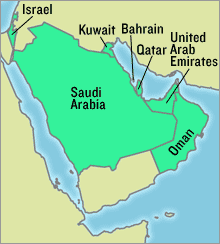|
Liz Claiborne in Kuwait?
More US brands flocking to the Middle East, overlooking geopolitics in favor of tapping the region's high-growth markets.
NEW YORK (CNNMoney.com) - While the world sees the Middle East as a hotbed of tension and geopolitical strife, brand-name purveyors of American fashion, entertainment and luxury products are eager to bulk up their business, particularly in the region's lucrative retail markets. For instance, women's apparel seller Liz Claiborne (Research) said Monday it has expanded its distribution partnership with a local Dubai-based company, MAF Fashion LLC, for exclusive rights to market certain brands, including Liz Claiborne, Mexx and Lucky Brand in the Middle East region.
Book retailer Borders (Research) late last week announced its first venture in the Middle East would be a Dubai-based franchise store also set up in partnership with a local retail group. Other American brands reportedly looking to sell in the Middle East include Coach, Dave & Buster's and Foot Locker. "The Middle East is fascinating as a market opportunity because that's where the money is," Paul Charron, chairman and CEO of Liz Claiborne, said in an interview with CNNMoney.com. "These consumers have high disposable incomes and they're becoming more sophisticated about what's fashionable not just in European haute couture but mainstream American brands like Coach, Ralph Lauren and Juicy Couture." Plenty of European retailers such as Marks & Spencer, Zara and Burberry already have expanded their store count in the region, said Fadi Farra, principal with consulting firm AT Kearney, and U.S. retailers need to move faster if they want to secure a strong foothold in this "high-growth consumer market." "U.S. retailers are a bit late to the game, like in most other global markets," he said. "With regard to the Middle East, one of the issues faced in the past has been the risk of boycott of U.S. brands during the Iraq war. But this should not be a deterrent as the region has a viable long-term potential in retail." Hot Gulf markets
"Most people don't know that the Middle East has one of the highest growth in consumer spending in the world," Farra added. Mainly in the United Arab Emirates (UAE), Saudi Arabia and Kuwait, consumer spending has grown 10 percent year-over-year for the past five years. The retail market there is also fairly fragmented. In Saudi Arabia, for example, the top five retailers account for less than 11 percent of total retail sales, he said. American retailers may find the biggest markets with the most growth in consumer spending in the cities of Sharjah, Abu Dhabi and Dubai in the UAE, Farra said. The next-strongest opportunities are in Bahrain, Kuwait, Qatar and the Kingdom of Saudi Arabia, he said. Then comes Lebanon and Israel, where the retail market is already fairly mature. "The window of opportunity is open today for American specialty retailers to come in and establish their brand either through franchising, licensing deals or distribution partnerships," Farra said. Why those formats? Analysts say these new-market entry strategies are relatively low risk and require very little capital expenditure. Liz Claiborne's Charron, who has visited Bahrain and is planning business trips to Dubai and Kuwait, pointed out another advantage: "We could've set up our own subsidiary but that would have been a dumb approach. I'd rather go into an unfamiliar region with local partners because there are all sorts of nuances that we as Americans are not appreciative of." "We're really excited to grow there," Charron added. "This is really a straightforward story about going to where the opportunities are. These [opportunities] certainly are more robust in the Middle East today than they were 20 years ago. The Middle East is a hotbed of tension, but businesspeople usually think long haul. Long-term, we think there are plenty of safe markets there." Who else is eager to test the Gulf waters?
Phil McArthur, director of leasing and marketing with "Dubai Festival City," a 1,600-acre mixed-use real estate development, said he's seen a surge in interest from American companies looking to come to Dubai. The Dubai Festival city-within-a-city -- reputed to be the Middle East's largest development -- combines retail, residential and leisure in the complex. "Dubai has about 8 million square feet of organized retail space for 1.5 million people," McArthur said in a phone interview from Dubai. "That's three times the gross leasable area [typically needed for] a population of that size." "Dubai is one of the most westernized places in the Middle East and so it's a good testing ground for foreign brands," McArthur added. "Since there is no income tax, consumers here have pretty good disposable incomes and sales density is high." Some other companies itching to test the Gulf waters are Dallas-based Dave & Buster's (Research), an operator of restaurant and entertainment complexes, which recently acquired a 35,000-square-foot space in Dubai, McArthur said. "Foot Locker announced recently that they're opening in the region and Coach is set to open a store too," he said. "Of course there always are rumors about who else wants to come." Meanwhile, Borders may be eyeing other Middle East locations as well, said Gregg Bodnar, senior vice president of international finance operation with the books retailer. "The Middle East is underserved in the books market and we see it as a high-growth corridor for us," he said. _________________
Click here to read about Wal-Mart's challenge in China. |
|

